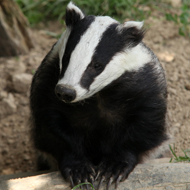
Law will impact wild badgers in Britain to horses in Hungary.
Votes by Members of the European Parliament (MEPs) will see two proposed European laws strengthened after the RSPCA reported that it believed it did not go far enough to address the root causes of the spread of animal disease.
Last year, the European commission published two bills - a proposed Animal Health Law and a new Regulation on Official Controls - which aim to provide a modern, simple and risk-based approach to the protection of animal and human health.
MEPs have been working since then to amend the proposals, which will affect millions of animals from from wild badgers in Britain to farmed horses on the continent being transported for slaughter.
The RSPCA said the new laws recognise disease concerns linked to long haul transportation and highlight the close links between animal health and welfare. They also praised MEPs for ensuring that a simplification of the Official Controls Regulation law doesn't equate to a reduction in standards.
Joe Moran, the RSPCA's Senior Parliamentary Adviser for Europe, commented on the results: "By adopting the motions today, MEPs have helped millions of animals across the Union - from badgers in Britain to horses in Hungary.
"The original proposal from the Commission on Animal Health simply didn't go far enough to address the root causes of animal disease occurrences. The amendments MEPs have adopted ensure that this law would become a useful tool for minimising transmissible diseases and animal suffering. Crucially it also provides for the development for vaccinations to truly fight the scourge of bovine TB.
"We now urge the Council to take on board the amendments that the Parliament has suggested, so that these new laws can be implemented as soon as is possible,” he added.



 The Animal and Plant Health Agency (APHA) has updated its online reporting service for dead wild birds.
The Animal and Plant Health Agency (APHA) has updated its online reporting service for dead wild birds.